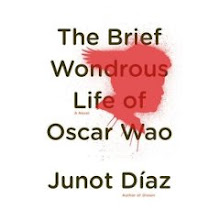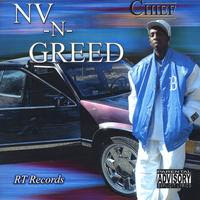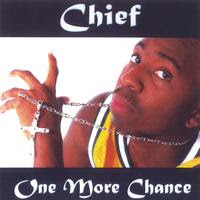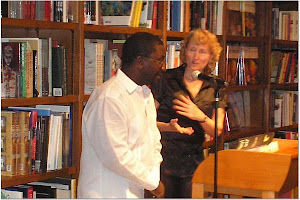My Ten Mentors
Not!
(. . . anymore, thank god)
10 Pro Athletes Who Couldn't Stop Gambling
Alex Rodriguez, who’s arguably the greatest player of his generation, has done a poor job of maintaining a clean reputation. After admitting to steroid use, receiving the nickname “A-Fraud” from his teammates, cheating on his wife, and enduring the perception that he’s “unclutch,” he’s made things even worse by participating in illegal high-stakes poker games. Of course, plenty of athletes have tarnished their reputations and careers due to their penchants for gambling. Conspiracy theorists, for example, like to claim that Michael Jordan’s first retirement was “forced” by David Stern because MJ allowed things to spiral out of control. The sometimes shady activities of these ultra-competitive, testosterone-laden jocks can produce fascinating stories. Here are 10 guys who serve as proof.
1. Pete Rose
From 1989 forward, all major sports gambling scandals have evoked and will evoke the name of Pete Rose, who remains banned from baseball and the only living person ineligible for the Hall of Fame. His activities as the manager of the Reds compromised the integrity of the game, even though the infamous Dowd Report indicated there was no evidence that he bet against the Reds — years later, investigator John Dowd stated that he thought Rose may have bet against his team. To date, Rose’s biggest admission is that he bet on the Reds “every night.”
2. Denny McClain
Rose’s coauthor of the 1969 instructional booklet How to Play Better Baseball shared a similar interest, one that contributed to his downfall just as he was reaching the prime of his career. After winning the Cy Young Award in 1968 and ’69, his interest in betting on horses eventually prompted him to invest in a bookmaking operation with members of the Syrian mob. According to an article in Sports Illustrated, a foot injury suffered by McClain in 1967 was caused by mobster Tony Giacolone, who bet on the Twins and Red Sox to win the pennant and the Angels in McClain’s last start of the season. McClain, certainly no golden boy, was suspended from baseball on three occasions and has lived a turbulent life since he left the game.
3. Alex Rodriguez
Major League Baseball’s biggest concerns with A-Rod’s involvement in the poker games is the presence of cocaine, the amount of debt he may have incurred and whether or not his activities have led him to betting on baseball. The Pete Rose ordeal has encouraged MLB to nip such issues in the bud — suspicions of Rose’s gambling problems arose in 1970, but, prior to the late ’80s, few could have imagined him being so reckless. A suspension may not be in the cards for A-Rod, but at the very least, he’ll have to suffer through a stern scolding from the commissioner.
4. Michael Jordan
As with your typical type A personality, Jordan always has to be in the middle of the action. In 1993, an eventful year for MJ, he was spotted gambling in Atlantic City the night before a game against the Knicks, he admitted to losing $165,000 due to the vice, and Richard Esquinas, a San Diego businessman, claimed MJ owed him $1.25 million after a game of golf. Now retired for almost a decade, it’s not uncommon to find him participating in high-stakes games or going 18 holes with another celebrity, adding to the veritable library of MJ gambling stories that have been collected through the years.
5. Charles Barkley
Long-time friends with Jordan, Barkley has been just as dedicated as a gambler. In 2006, he told ESPN that he lost $10 million due to the habit — including $2.5 million in six hours while playing blackjack and $700,000 during a Super Bowl weekend — stating that “It is a problem for me,” though he said he would continue gambling. Two years later, The Wynn in Las Vegas sued him for $400,000 for unpaid gambling markers, causing him to publically declare “I’m not going to gamble anymore” on TNT’s NBA playoff pregame show. Not exactly known for his willpower, it’s doubtful that Barkley has stayed the course.
6. Paul Hornung
During the early ’60s, gambling was a major problem in the NFL , as evidenced by the suspensions of its biggest star, Hornung, and All-Pro tackle Alex Karras, both of whom missed the 1963 season for betting on NFL games and associating with gamblers. Hornung bet up to $500 on games, but never bet on the Packers, according to Commissioner Pete Rozelle. Hornung, the league leader in scoring from 1959 to 1961, led the Packers to the 1961 and 1962 NFL championships —the team wouldn’t win another until 1965, a year after he was reinstated. His forthrightness about his gambling ensured the punishment wasn’t too severe and his reputation remained intact.
7. Art Schlichter
A year before the Colts drafted Elway and subsequently traded him away, they made the mistake of drafting Schlichter, whose questionable associations in college foretold the problems that would plague him for much of his life. His signing bonus was gone by midway through his rookie season, and by the end of the 1982 strike, he was $700,000 in debt. Eventually he became the first NFL player suspended for gambling since Hornung and Karras. With his NFL career over, he was arrested in 1987 for his involvement in a multimillion-dollar sports betting operation. Having committed more than 20 felonies during his lifetime, Schlichter has essentially resorted to fraud and forgery for his livelihood.
8. Wayne Rooney
Just 25 years old, it’s difficult to imagine that Rooney has been an international soccer star for several years. It’s even more difficult to imagine that he’s gambled away almost £1 million. As a 20-year-old, he accumulated £700,000 in debt while betting on football (also known as soccer), horses and dogs with a business associate of teammate Michael Owen, a dispute that was eventually settled. Two years later, it was reported that he lost £65,000 in just two hours in a Manchester casino. Rooney has pledged to control his gambling, but with weekly earnings surpassing UK’s gross annual median salary, it’s clear that he has the resources to maintain the habit.
9. Rick Tocchet
Since the versatile Tocchet hung up the skates in 2002, he has pursued careers as a coach, television analyst and bookmaker, the latter of which resulted in two years probation and leave of absence from the NHL. According to a criminal complaint, he was one of the primary funders of a nationwide sports gambling ring out of New Jersey used by several current NHL players. Also operated by ex-New Jersey State Trooper James Harney and a man named James Ulmer, it averaged more than five bets per day worth a total of more than $5,000. Overall, more than $1 million circulated through the ring.
10. John Daly
Barkley’s surprising admission that he lost $10 million to gambling was spurred by Daly’s even more astounding revelation that he lost between $50 million and $60 million during a 12-year period, an estimate that Barkley thought was exaggerated — after all, Daly had an autobiography to sell. With Daly’s unique personality and many vices, stories of his extracurricular activities are abundant. For example, after narrowly losing a match at a World Golf Championship, he lost $1.65 million in just five hours while playing the $5,000 slots. Fortunately for Daly, he can maintain a steady stream of income because of his legendary off-the-course status.
A blog for lovers of the printed word (novels, short stories, poems--the Ing so to speak), popular film, politics, and casinos (the Bling).
Tuesday, May 29, 2012
My Mentor: ArtSchlichter
When I grow up, I want to be just like him.
Not!
(Thank god for GA) v
Former NFL quarterback sentenced to 11 years for sports ticket scheme
foxnews.com
COLUMBUS, Ohio – The painful saga of ex-Ohio State and Indianapolis Colts quarterback Art Schlichter came to a close Friday when a federal judge sentenced him to nearly 11 years in prison for scamming participants in what authorities called a million-dollar sports ticket scheme.
Schlichter, 52, had been down this road before, spending time in prison in Indiana related to his gambling addiction, which he claimed to have overcome. But he continued to struggle, by his own admission, and his stumbles included testing positive for cocaine use while on house arrest following his guilty plea in the ticket case.
The 127-month sentence handed down by U.S. District Court Judge Michael Watson in Columbus reflects both punishment for the ticket scheme and time for violating probation from Schlichter's 1997 forgery and theft conviction in Indiana.
Schlichter's original plea deal last year in federal court called for him to serve eight years in prison, to run at the same time as a 10-year state prison sentence on related charges.
But Marion Superior Court Judge Grant Hawkins in Indianapolis refused to cancel Schlichter's arrest warrant in Indiana until the extra time was added.
The new deal, which Schlichter agreed to in the fall, increased the federal time by 27 months. Watson signed off on the deal Friday before sentencing Schlichter.
Assuming Schlichter earns federal good-time behavior credit, he'll serve just over nine years in federal prison, compared with just over seven under the original deal.
He'll still have a few months left on his state prison term at that point, although he'll also receive credit for jail time since his February arrest.
State and federal authorities say Schlichter, whose NFL career was derailed by a gambling addiction, promised college and NFL game tickets, including the Super Bowl, but never delivered despite receiving thousands of dollars in payments.
Schlichter's road to Friday's sentencing was as bumpy as his playing career.
After pleading guilty in the fall, Schlichter stayed free on house arrest pending sentencing and was allowed to attend weekly counseling.
But in January, Schlichter was arrested after twice testing positive for cocaine and by refusing several times to provide urine samples. Watson postponed his sentencing and gave Schlichter more time to have his mental health assessed.
Schlichter has asked for prison drug abuse counseling once he's sentenced.
One of Schlichter's victims in the ticket scheme was the widow of a former Wendy's Co. president, whose attorney said last year she had been ruined by Schlichter. Anita Barney's homes are being foreclosed and her only income is from Social Security, attorney William Loveland said.
Schlichter has said he is ashamed of his addiction.
A federal bankruptcy filing by Barney last month listed a $2.3 million claim against Schlichter for fraud, embezzlement, theft and restitution.
Schlichter played at Ohio State between 1978 and 1981 and in the NFL for the Baltimore and Indianapolis Colts and Buffalo Bills. His later went to prison for gambling-related crimes.
foxnews.com
Not!
(Thank god for GA) v
Former NFL quarterback sentenced to 11 years for sports ticket scheme
foxnews.com
COLUMBUS, Ohio – The painful saga of ex-Ohio State and Indianapolis Colts quarterback Art Schlichter came to a close Friday when a federal judge sentenced him to nearly 11 years in prison for scamming participants in what authorities called a million-dollar sports ticket scheme.
Schlichter, 52, had been down this road before, spending time in prison in Indiana related to his gambling addiction, which he claimed to have overcome. But he continued to struggle, by his own admission, and his stumbles included testing positive for cocaine use while on house arrest following his guilty plea in the ticket case.
The 127-month sentence handed down by U.S. District Court Judge Michael Watson in Columbus reflects both punishment for the ticket scheme and time for violating probation from Schlichter's 1997 forgery and theft conviction in Indiana.
Schlichter's original plea deal last year in federal court called for him to serve eight years in prison, to run at the same time as a 10-year state prison sentence on related charges.
But Marion Superior Court Judge Grant Hawkins in Indianapolis refused to cancel Schlichter's arrest warrant in Indiana until the extra time was added.
The new deal, which Schlichter agreed to in the fall, increased the federal time by 27 months. Watson signed off on the deal Friday before sentencing Schlichter.
Assuming Schlichter earns federal good-time behavior credit, he'll serve just over nine years in federal prison, compared with just over seven under the original deal.
He'll still have a few months left on his state prison term at that point, although he'll also receive credit for jail time since his February arrest.
State and federal authorities say Schlichter, whose NFL career was derailed by a gambling addiction, promised college and NFL game tickets, including the Super Bowl, but never delivered despite receiving thousands of dollars in payments.
Schlichter's road to Friday's sentencing was as bumpy as his playing career.
After pleading guilty in the fall, Schlichter stayed free on house arrest pending sentencing and was allowed to attend weekly counseling.
But in January, Schlichter was arrested after twice testing positive for cocaine and by refusing several times to provide urine samples. Watson postponed his sentencing and gave Schlichter more time to have his mental health assessed.
Schlichter has asked for prison drug abuse counseling once he's sentenced.
One of Schlichter's victims in the ticket scheme was the widow of a former Wendy's Co. president, whose attorney said last year she had been ruined by Schlichter. Anita Barney's homes are being foreclosed and her only income is from Social Security, attorney William Loveland said.
Schlichter has said he is ashamed of his addiction.
A federal bankruptcy filing by Barney last month listed a $2.3 million claim against Schlichter for fraud, embezzlement, theft and restitution.
Schlichter played at Ohio State between 1978 and 1981 and in the NFL for the Baltimore and Indianapolis Colts and Buffalo Bills. His later went to prison for gambling-related crimes.
foxnews.com
Genuine Genius! Or How We Can Make It the Rule, Rather than the Exception
And believe me, this kid is only getting started.
Actually, I have this theory. If we want fresh ideas in math and physics and the mechanical sciences in our society, we need to start teaching these subjects to our kids earlier.
Oh, you say, their brains can't handle that stuff when they're so young.
Oh yeah? How old were you when you learned geometry? Or TRIED to learn geometry? About 13, 14, maybe 15? It was pretty difficult, right? Maybe it was because you weren't paying much attention, what with puberty going on and all that. Okay, now when did you learn to add? To subtract? To multiply and divide? When you were 7, 8, 9? And this is rather difficult stuff too, right? No? Try to learn it when you are 13, 14, or 15. Hey, why not try to learn it at 21? I bet you that these simple math principles would be as difficult to learn at 21 as algebra and geometry are at 13.
Think about it this way. Playing the violin is pretty difficult too, but we know that kids who start young (like 4 or 5) have the advantage over kids who start at 10, 11, or 12. Think about the Suzuki school. Think about Mozart, who I am told, was WRITING sonatas when he was six. His father was a musician. His mother was a musician. His older sister was a musician. . . . I'm not saying that we can take anything away from his natural gift, but he was surrounded by music. Imagine what his contribution to the world of music would have been if he were surrounded by farmers, or graphic artists, or map makers, and he took his first piano or violin lesson at 13.
Let's try another example, language. If you want a bilingual child--a child who speaks that second language flawlessly and without an accent, what do you do? Immerse him/her in it real young--I mean like in infancy, like you do with his first language.
And furthermore, what do they teach you after you learn to do rudimentary arithmetic at the age of 7, 8, or 9? Pretty much . . . nothing. They simply repeat it again and again (they call it reinforcing instead of repeating) until you get to middle school--and puberty.
The point I'm trying to make is this: We only get a handful of kids good enough in the "hard" sciences at the end of this wasteful process, and that handful is indeed brilliant--but, I believe, limited in its vision. It is quite possible that some of the interesting ideas (notice I said "some," not "all") are wasted on those kids who don't qualify for M.I.T. or Cal Tech, because, frankly, they are not good enough in math and physics; so they major in the "soft" sciences like business, and law, and literature, and art. These GENIUSES major in business, and law, and literature, and art. And we know that they are geniuses because if we consider the level of difficulty of their processes--ah hell, let's go back to Leonardo da Vinci and people like that back in the the European renaissance and the age of enlightenment before the geniuses of art and science became divided into soft and hard.
What I'm trying to say is that if we taught our kids geometry, algebra, calculus, and physics young, when they've already learned the basics and they're churning, just repeating the same stuff over and over, I am quite sure that this child would not be the exception, but the rule. Furthermore, our M.I.T.'s and our Cal Tech's would be filled to the brim with budding scientist who have the same sensibilities and vision as our artists and other great thinkers. And we would be ushering in a new renaissance.
________________________________________________________________
German teen Shouryya Ray solves 300-year-old mathematical riddle posed by Sir Isaac Newton
From: NewsCore May 27, 2012 5:12PM
________________________________________________________________
A GERMAN 16-year-old has become the first person to solve a mathematical problem posed by Sir Isaac Newton more than 300 years ago.
Shouryya Ray worked out how to calculate exactly the path of a projectile under gravity and subject to air resistance, The (London) Sunday Times reported.
The Indian-born teen said he solved the problem that had stumped mathematicians for centuries while working on a school project.
Mr Ray won a research award for his efforts and has been labeled a genius by the German media, but he put it down to "curiosity and schoolboy naivety".
"When it was explained to us that the problems had no solutions, I thought to myself, 'well, there's no harm in trying,'" he said.
Mr Ray's family moved to Germany when he was 12 after his engineer father got a job at a technical college. He said his father instilled in him a "hunger for mathematics" and taught him calculus at the age of six.
Mr Ray's father, Subhashis, said his son's mathematical prowess quickly outstripped his own considerable knowledge.
"He never discussed his project with me before it was finished and the mathematics he used are far beyond my reach," he said.
Despite not speaking a word of German when he arrived, Mr Ray will this week sit Germany's high school leaving exams, two years ahead of his peers.
Newton posed the problem, relating to the movement of projectiles through the air, in the 17th century. Mathematicians had only been able to offer partial solutions until now.
If that wasn't enough of an achievement, Mr Ray has also solved a second problem, dealing with the collision of a body with a wall, that was posed in the 19th century.
________________________________________________________________ Both problems Mr Ray resolved are from the field of dynamics and his solutions are expected to contribute to greater precision in areas such as ballistics.
Actually, I have this theory. If we want fresh ideas in math and physics and the mechanical sciences in our society, we need to start teaching these subjects to our kids earlier.
Oh, you say, their brains can't handle that stuff when they're so young.
Oh yeah? How old were you when you learned geometry? Or TRIED to learn geometry? About 13, 14, maybe 15? It was pretty difficult, right? Maybe it was because you weren't paying much attention, what with puberty going on and all that. Okay, now when did you learn to add? To subtract? To multiply and divide? When you were 7, 8, 9? And this is rather difficult stuff too, right? No? Try to learn it when you are 13, 14, or 15. Hey, why not try to learn it at 21? I bet you that these simple math principles would be as difficult to learn at 21 as algebra and geometry are at 13.
Think about it this way. Playing the violin is pretty difficult too, but we know that kids who start young (like 4 or 5) have the advantage over kids who start at 10, 11, or 12. Think about the Suzuki school. Think about Mozart, who I am told, was WRITING sonatas when he was six. His father was a musician. His mother was a musician. His older sister was a musician. . . . I'm not saying that we can take anything away from his natural gift, but he was surrounded by music. Imagine what his contribution to the world of music would have been if he were surrounded by farmers, or graphic artists, or map makers, and he took his first piano or violin lesson at 13.
Let's try another example, language. If you want a bilingual child--a child who speaks that second language flawlessly and without an accent, what do you do? Immerse him/her in it real young--I mean like in infancy, like you do with his first language.
And furthermore, what do they teach you after you learn to do rudimentary arithmetic at the age of 7, 8, or 9? Pretty much . . . nothing. They simply repeat it again and again (they call it reinforcing instead of repeating) until you get to middle school--and puberty.
The point I'm trying to make is this: We only get a handful of kids good enough in the "hard" sciences at the end of this wasteful process, and that handful is indeed brilliant--but, I believe, limited in its vision. It is quite possible that some of the interesting ideas (notice I said "some," not "all") are wasted on those kids who don't qualify for M.I.T. or Cal Tech, because, frankly, they are not good enough in math and physics; so they major in the "soft" sciences like business, and law, and literature, and art. These GENIUSES major in business, and law, and literature, and art. And we know that they are geniuses because if we consider the level of difficulty of their processes--ah hell, let's go back to Leonardo da Vinci and people like that back in the the European renaissance and the age of enlightenment before the geniuses of art and science became divided into soft and hard.
What I'm trying to say is that if we taught our kids geometry, algebra, calculus, and physics young, when they've already learned the basics and they're churning, just repeating the same stuff over and over, I am quite sure that this child would not be the exception, but the rule. Furthermore, our M.I.T.'s and our Cal Tech's would be filled to the brim with budding scientist who have the same sensibilities and vision as our artists and other great thinkers. And we would be ushering in a new renaissance.
________________________________________________________________
German teen Shouryya Ray solves 300-year-old mathematical riddle posed by Sir Isaac Newton
From: NewsCore May 27, 2012 5:12PM
________________________________________________________________
A GERMAN 16-year-old has become the first person to solve a mathematical problem posed by Sir Isaac Newton more than 300 years ago.
Shouryya Ray worked out how to calculate exactly the path of a projectile under gravity and subject to air resistance, The (London) Sunday Times reported.
The Indian-born teen said he solved the problem that had stumped mathematicians for centuries while working on a school project.
Mr Ray won a research award for his efforts and has been labeled a genius by the German media, but he put it down to "curiosity and schoolboy naivety".
"When it was explained to us that the problems had no solutions, I thought to myself, 'well, there's no harm in trying,'" he said.
Mr Ray's family moved to Germany when he was 12 after his engineer father got a job at a technical college. He said his father instilled in him a "hunger for mathematics" and taught him calculus at the age of six.
Mr Ray's father, Subhashis, said his son's mathematical prowess quickly outstripped his own considerable knowledge.
"He never discussed his project with me before it was finished and the mathematics he used are far beyond my reach," he said.
Despite not speaking a word of German when he arrived, Mr Ray will this week sit Germany's high school leaving exams, two years ahead of his peers.
Newton posed the problem, relating to the movement of projectiles through the air, in the 17th century. Mathematicians had only been able to offer partial solutions until now.
If that wasn't enough of an achievement, Mr Ray has also solved a second problem, dealing with the collision of a body with a wall, that was posed in the 19th century.
________________________________________________________________ Both problems Mr Ray resolved are from the field of dynamics and his solutions are expected to contribute to greater precision in areas such as ballistics.
He's back!
Well, it's been more than a year since my life-changing medical emergency, so I think it's safe to go back to blogging. So . . . I'm back and ready to rock!
What the Hell??
What is this town coming to?
Naked Cannibals?
This could almost be funny . . . if it weren't true.
--This from the Miami Herald--
BY DANIELA GUZMAN AND JULIE K. BROWN jbrown@MiamiHerald.com
It was a scene as creepy as a Hannibal Lecter movie.
One man was shot to death by Miami police, and another man is fighting for his life after he was attacked, and his face allegedly half eaten, by a naked man on the MacArthur Causeway off ramp Saturday, police said.
The horror began about 2 p.m. when a series of gunshots were heard on the ramp, which is along NE 13th Street, just south of The Miami Herald building.
According to police sources, a road ranger saw a naked man chewing on another man’s face and shouted on his loud speaker for him to back away.Meanwhile, a woman also saw the incident and flagged down a police officer who was in the area.
The officer, who has not been identified, approached and, seeing what was happening, also ordered the naked man to back away. When he continued the assault, the officer shot him, police sources said. The attacker failed to stop after being shot, forcing the officer to continue firing. Witnesses said they heard at least a half dozen shots.
Miami police were on the scene, which was just south of The Miami Herald building on Biscayne Boulevard. The naked man who was killed lay face down on the pedestrian walkway just below the newspaper’s two-story parking garage. Police have requested The Herald’s video surveillance tapes.
The other man was transported to the hospital with critical injuries, according to police. Their identities were not released.
The incident, which came as crowds descended upon South Beach for the annual Urban Beach Week hip-hop festival, snarled traffic on the causeway for several hours.
In a text message, Javier Ortiz, spokesman for Miami police’s Fraternal Order of Police, said the officer who fired the fatal shots was “a hero.”
“Based on the information provided, our Miami police officer is a hero and saved a life,’’ he said.
Sergeant Altarr Williams, supervisor of Miami police’s Homicide Unit, said a man doesn’t have to be armed to be dangerous.
“There are other ways to injure people,’’ Williams said. “Some people know martial arts, others are very strong and can kill you with their hands.’’
Investigators believe the victim may have been homeless and laying down when the crazed man pounced.
Police theorize the attacker might have been suffering from "cocaine psychosis," a drug-induced craze that bakes the body internally and often leads the affected to strip naked to try and cool off.
Miami Herald writers Alexandra Leon and Curtis Morgan contributed to this report.
miamiherald.com
This could almost be funny . . . if it weren't true.
--This from the Miami Herald--
BY DANIELA GUZMAN AND JULIE K. BROWN jbrown@MiamiHerald.com
It was a scene as creepy as a Hannibal Lecter movie.
One man was shot to death by Miami police, and another man is fighting for his life after he was attacked, and his face allegedly half eaten, by a naked man on the MacArthur Causeway off ramp Saturday, police said.
The horror began about 2 p.m. when a series of gunshots were heard on the ramp, which is along NE 13th Street, just south of The Miami Herald building.
According to police sources, a road ranger saw a naked man chewing on another man’s face and shouted on his loud speaker for him to back away.Meanwhile, a woman also saw the incident and flagged down a police officer who was in the area.
The officer, who has not been identified, approached and, seeing what was happening, also ordered the naked man to back away. When he continued the assault, the officer shot him, police sources said. The attacker failed to stop after being shot, forcing the officer to continue firing. Witnesses said they heard at least a half dozen shots.
Miami police were on the scene, which was just south of The Miami Herald building on Biscayne Boulevard. The naked man who was killed lay face down on the pedestrian walkway just below the newspaper’s two-story parking garage. Police have requested The Herald’s video surveillance tapes.
The other man was transported to the hospital with critical injuries, according to police. Their identities were not released.
The incident, which came as crowds descended upon South Beach for the annual Urban Beach Week hip-hop festival, snarled traffic on the causeway for several hours.
In a text message, Javier Ortiz, spokesman for Miami police’s Fraternal Order of Police, said the officer who fired the fatal shots was “a hero.”
“Based on the information provided, our Miami police officer is a hero and saved a life,’’ he said.
Sergeant Altarr Williams, supervisor of Miami police’s Homicide Unit, said a man doesn’t have to be armed to be dangerous.
“There are other ways to injure people,’’ Williams said. “Some people know martial arts, others are very strong and can kill you with their hands.’’
Investigators believe the victim may have been homeless and laying down when the crazed man pounced.
Police theorize the attacker might have been suffering from "cocaine psychosis," a drug-induced craze that bakes the body internally and often leads the affected to strip naked to try and cool off.
Miami Herald writers Alexandra Leon and Curtis Morgan contributed to this report.
miamiherald.com
Subscribe to:
Posts (Atom)
Lipshitz 6

Reading T Cooper for Christmas
Click Here to Purchase Lipshitz 6
Punk Blood

Jay Marvin
Click Here to Purchase Punk Blood
Breath, Eyes, Memory

Anonymous Rex

Reading Eric Garcia for Christmas
Click Here to Purchase Anonymous Rex
Vinegar Hill

Reading A. Manette Ansay for Christmas
Click Here to Purchase Vinegar Hill
Nicotine Dreams

Reading Katie Cunningham for Christmas
Click Here to Purchase Nicotine Dreams
Junot Diaz

Pulitzer Prize Winner!!!
Click Here to Purchase The Brief Wondrous Life of Oscar Wao
Edwige Danticat

New Year's Reading
Click Here to Purchase Brother I"m Dying
Greed

This Brother Is Scary Good
Sweet Music
One More Chance

The genius Is At It Again/The Rapper CHIEF aka Sherwin Allen
Sandrine's Letter
Check out Sandrine's Letter To Tomorrow. You will like it, I insist.
Sandrine's Link
Cool Sites
- Akashic Books
- All or Nothing (My Other Blog)
- Asili The Journal
- Best Gamblling News Site
- Black Star Review
- Book Remarks
- Booktour.com
- Carolina Wren Press
- Click Here for Some Pretty Good Writing Contests
- Dedra Johnson
- Enrico Theoc
- Felicia Luna Lemus
- Florida Book Review
- Foreword Magazine
- Gambling Is Linked to Suicide
- Gambling Is Not Linked to Suicide
- Gaming Law Review
- Gene Durnell's The Thinking Journalist
- Gene Durnell's The Thinking Journalist
- Geoffrey Philp's Blog
- Get Chief's CDs on CD Baby
- Getting Past Gambling
- Gonzalo Barr's Blog
- Good Reads
- Hallema's Homepage
- Help With Gambling Addiction
- Jeremy Shipp's Website
- John Dufresne's Blog
- Leonard Nash Homepage
- Links to Seminole Casinos in Florida
- Martha Frankel's Homepage
- Michael A. Gonzales
- Miss Snark/ An Agent Gives Great Publishing Advice
- More Addiction Help
- No Gambling.com
- Pat MacEnulty
- ScrewIowa.com
- St. Louis Rams, The Greatest Show on Turf
- Suicide reference library
- T Cooper
- University of Florida
- Vicki Hendricks
- Walter Jacobs's Blog
- Writers Who Read
- Writing with Celia

All or Nothing

Editorial Reviews of All or Nothing
New York Times--". . . a cartographer of autodegradation . . . Like Dostoyevsky, Allen colorfully evokes the gambling milieu — the chained (mis)fortunes of the players, their vanities and grotesqueries, their quasi-philosophical ruminations on chance. Like Burroughs, he is a dispassionate chronicler of the addict’s daily ritual, neither glorifying nor vilifying the matter at hand."
Florida Book Review--". . . Allen examines the flaming abyss compulsive gambling burns in its victims’ guts, self-esteem and bank accounts, the desperate, myopic immediacy it incites, the self-destructive need it feeds on, the families and relationships it destroys. For with gamblers, it really is all or nothing. Usually nothing. Take it from a reviewer who’s been there. Allen is right on the money here."
Foreword Magazine--"Not shame, not assault, not even murder is enough reason to stop. Allen’s second novel, All or Nothing, is funny, relentless, haunting, and highly readable. P’s inner dialogues illuminate the grubby tragedy of addiction, and his actions speak for the train wreck that is gambling."
Library Journal--"Told without preaching or moralizing, the facts of P's life express volumes on the destructive power of gambling. This is strongly recommended and deserves a wide audience; an excellent choice for book discussion groups."—Lisa Rohrbaugh, East Palestine Memorial P.L., OH
LEXIS-NEXIS--"By day, P drives a school bus in Miami. But his vocation? He's a gambler who craves every opportunity to steal a few hours to play the numbers, the lottery, at the Indian casinos. Allen has a narrative voice as compelling as feeding the slots is to P." Betsy Willeford is a Miami-based freelance book reviewer. November 4, 2007
Publisher’s Weekly--"Allen’s dark and insightful novel depicts narrator P’s sobering descent into his gambling addiction . . . The well-written novel takes the reader on a chaotic ride as P chases, finds and loses fast, easy money. Allen (Churchboys and Other Sinners) reveals how addiction annihilates its victims and shows that winning isn’t always so different from losing."
Kirkus Review--"We gamble to gamble. We play to play. We don't play to win." Right there, P, desperado narrator of this crash-'n'-burn novella, sums up the madness. A black man in Miami, P has graduated from youthful nonchalance (a '79 Buick Electra 225) to married-with-a-kid pseudo-stability, driving a school bus in the shadow of the Biltmore. He lives large enough to afford two wide-screen TVs, but the wife wants more. Or so he rationalizes, as he hits the open-all-night Indian casinos, "controlling" his jones with a daily ATM maximum of $1,000. Low enough to rob the family piggy bank for slot-machine fodder, he sinks yet further, praying that his allergic 11-year-old eat forbidden strawberries—which will send him into a coma, from which he'll emerge with the winning formula for Cash 3 (the kid's supposedly psychic when he's sick). All street smarts and inside skinny, the book gives readers a contact high that zooms to full rush when P scores $160,000 on one lucky machine ("God is the God of Ping-ping," he exults, as the coins flood out). The loot's enough to make the small-timer turn pro, as he heads, flush, to Vegas to cash in. But in Sin City, karmic payback awaits. Swanky hookers, underworld "professors" deeply schooled in sure-fire systems to beat the house, manic trips to the CashMyCheck store for funds to fuel the ferocious need—Allen's brilliant at conveying the hothouse atmosphere of hell-bent gaming. Fun time in the Inferno.
Florida Book Review--". . . Allen examines the flaming abyss compulsive gambling burns in its victims’ guts, self-esteem and bank accounts, the desperate, myopic immediacy it incites, the self-destructive need it feeds on, the families and relationships it destroys. For with gamblers, it really is all or nothing. Usually nothing. Take it from a reviewer who’s been there. Allen is right on the money here."
Foreword Magazine--"Not shame, not assault, not even murder is enough reason to stop. Allen’s second novel, All or Nothing, is funny, relentless, haunting, and highly readable. P’s inner dialogues illuminate the grubby tragedy of addiction, and his actions speak for the train wreck that is gambling."
Library Journal--"Told without preaching or moralizing, the facts of P's life express volumes on the destructive power of gambling. This is strongly recommended and deserves a wide audience; an excellent choice for book discussion groups."—Lisa Rohrbaugh, East Palestine Memorial P.L., OH
LEXIS-NEXIS--"By day, P drives a school bus in Miami. But his vocation? He's a gambler who craves every opportunity to steal a few hours to play the numbers, the lottery, at the Indian casinos. Allen has a narrative voice as compelling as feeding the slots is to P." Betsy Willeford is a Miami-based freelance book reviewer. November 4, 2007
Publisher’s Weekly--"Allen’s dark and insightful novel depicts narrator P’s sobering descent into his gambling addiction . . . The well-written novel takes the reader on a chaotic ride as P chases, finds and loses fast, easy money. Allen (Churchboys and Other Sinners) reveals how addiction annihilates its victims and shows that winning isn’t always so different from losing."
Kirkus Review--"We gamble to gamble. We play to play. We don't play to win." Right there, P, desperado narrator of this crash-'n'-burn novella, sums up the madness. A black man in Miami, P has graduated from youthful nonchalance (a '79 Buick Electra 225) to married-with-a-kid pseudo-stability, driving a school bus in the shadow of the Biltmore. He lives large enough to afford two wide-screen TVs, but the wife wants more. Or so he rationalizes, as he hits the open-all-night Indian casinos, "controlling" his jones with a daily ATM maximum of $1,000. Low enough to rob the family piggy bank for slot-machine fodder, he sinks yet further, praying that his allergic 11-year-old eat forbidden strawberries—which will send him into a coma, from which he'll emerge with the winning formula for Cash 3 (the kid's supposedly psychic when he's sick). All street smarts and inside skinny, the book gives readers a contact high that zooms to full rush when P scores $160,000 on one lucky machine ("God is the God of Ping-ping," he exults, as the coins flood out). The loot's enough to make the small-timer turn pro, as he heads, flush, to Vegas to cash in. But in Sin City, karmic payback awaits. Swanky hookers, underworld "professors" deeply schooled in sure-fire systems to beat the house, manic trips to the CashMyCheck store for funds to fuel the ferocious need—Allen's brilliant at conveying the hothouse atmosphere of hell-bent gaming. Fun time in the Inferno.
At Books and Books

Me And Vicki at Our Reading
Bio
Preston L. Allen is the recipient of a State of Florida Individual Artist Fellowship in Literature and the Sonja H. Stone Prize in Fiction for his short story collection Churchboys and Other Sinners (Carolina Wren Press 2003). His works have appeared in numerous publications including The Seattle Review, The Crab Orchard Review, Asili, Drum Voices, and Gulfstream Magazine; and he has been anthologized in Here We Are: An Anthology of South Florida Writers, Brown Sugar: A Collection of Erotic Black Fiction, Miami Noir, and the forthcoming Las Vegas Noir. His fourth novel, All Or Nothing, chronicles the life of a small-time gambler who finally hits it big. Preston Allen teaches English and Creative Writing in Miami, Florida.